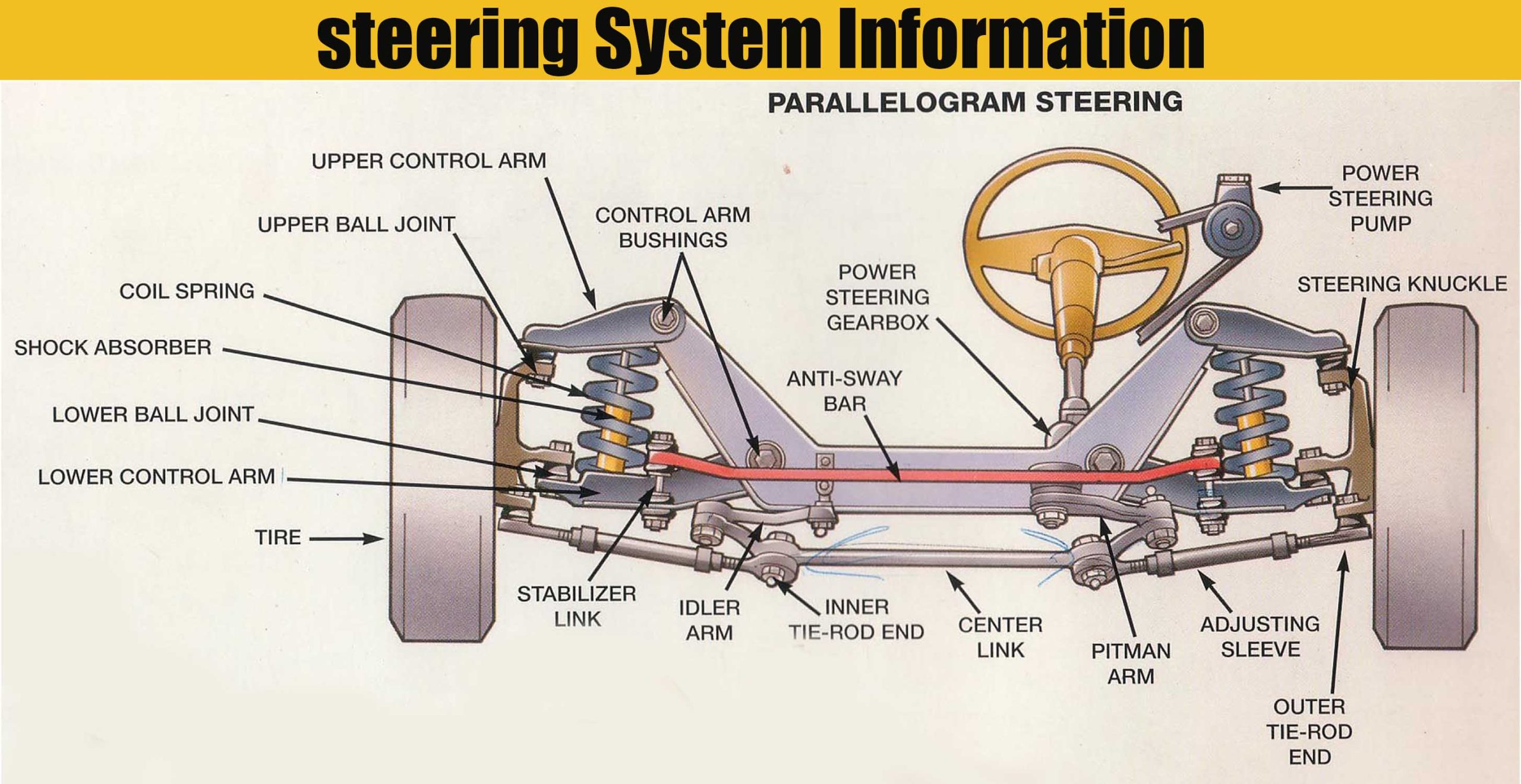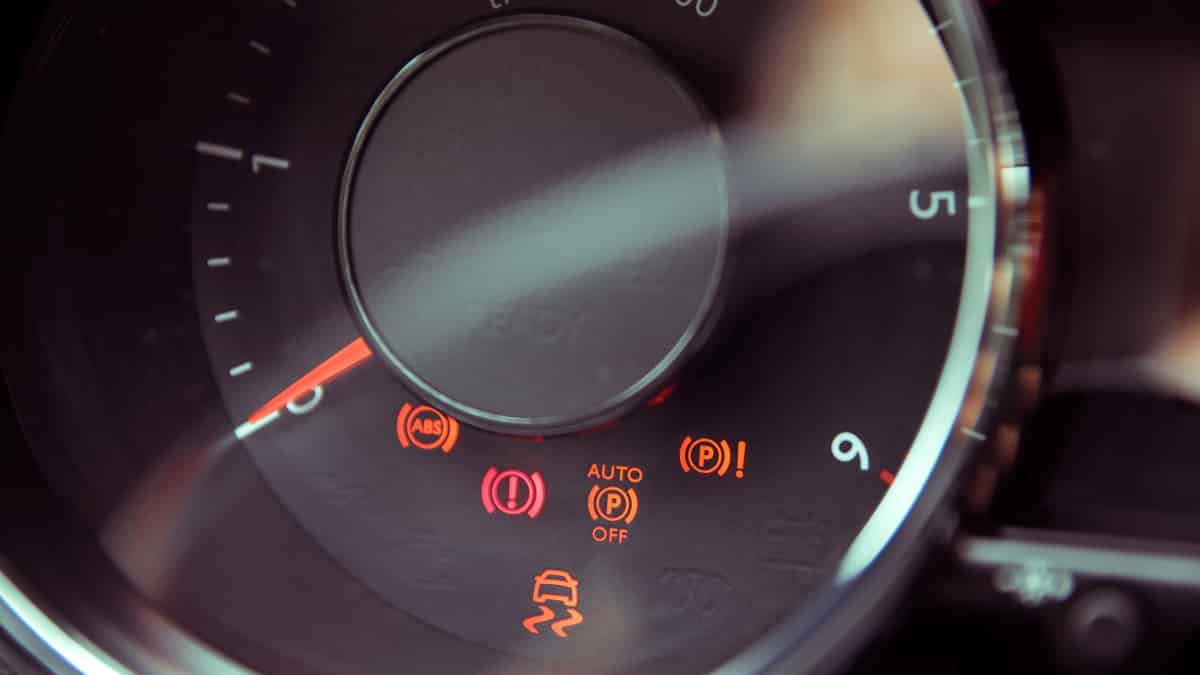Unbelievable Tips About Does ESC Affect Steering

ESC and Steering
1. The Electronic Stability Control System and Its Role
Okay, so you're wondering if that little ESC light flashing on your dashboard has anything to do with why your car feels a bit...off when you're turning. It's a fair question! Electronic Stability Control (ESC) is designed to help you maintain control of your vehicle, especially in tricky situations like skidding or losing traction. But does that assistance come at a price? Does it mess with your steering feel? Let's dive in and untangle this a bit.
Think of ESC as your car's guardian angel. It's constantly monitoring things like your steering angle, wheel speed, and yaw rate (that's how much your car is rotating). If it detects that you're about to lose control—say, you're turning too sharply on a slippery road—it jumps into action. And it does that by selectively applying the brakes to individual wheels.
This selective braking is the key here. By braking one or more wheels, ESC can help steer the car back onto the intended path. It's like a subtle nudge in the right direction, preventing you from spinning out or losing control. Pretty neat, huh? So, how does all of this relate to your steering?
Well, while ESC's primary function isn't to directly manipulate the steering system itself (like power steering does), its intervention can definitely be felt through the steering wheel. It's more of an indirect effect, but it's there. You might feel a slight tug or resistance, or a momentary change in the steering effort. This is the system doing its thing, trying to keep you safe.

Car Front Steering Diagram
How ESC Impacts Steering Feel
2. Understanding the Subtle Influences
The influence of ESC on steering isn't always obvious. In normal driving conditions, you probably won't even notice it. It's designed to be seamless, intervening only when absolutely necessary. But when the system is actively working to prevent a skid or loss of control, you might experience a few things through the steering wheel.
One common sensation is a feeling of "grabbing" or "pulsing" in the steering. This is caused by the ESC system rapidly applying and releasing the brakes on individual wheels. It's a very quick process, but you can definitely feel it. It's like the car is trying to correct itself, and you're along for the ride.
Another thing you might notice is a slight increase in steering effort. This is because the ESC system is working against the forces that are causing the skid. It's essentially trying to pull the car back into line, which can require a bit more effort on your part to maintain the desired course. The 'keyword' here is that ESC affect steering.
Also, ESC can sometimes make the steering feel a bit "numb" or less responsive. This is because the system is prioritizing stability over steering precision. It's more concerned with preventing a crash than with giving you the most engaging driving experience. It's a trade-off, but a worthwhile one in most cases. Think of it this way: you'd rather have a slightly numb steering wheel than end up in a ditch, right?

"Steering Assist Is Reduced" And "Service ESC" R/BoltEV
When ESC Steps In
3. Examples of ESC in Action and Steering Feedback
Let's paint a few pictures to illustrate how ESC affects steering in real-world scenarios. Imagine you're driving on a wet road and you enter a corner a little too fast. As you start to feel the car lose grip, the ESC system kicks in. You might feel a slight tug on the steering wheel as the system applies the brakes to the outer wheels, helping to steer the car back into the turn.
Or, suppose you're driving on a snow-covered road and you accidentally swerve to avoid an obstacle. As the car begins to skid sideways, the ESC system intervenes, applying the brakes to the appropriate wheels to help straighten the car out. You might feel a pulsating sensation in the steering wheel as the system works to regain control. You'll definitely feel ESC affect steering.
Another common scenario is driving on gravel or loose dirt. In these conditions, it's easy to lose traction, especially when accelerating or braking. If the ESC system detects wheel spin, it will automatically reduce engine power and apply the brakes to the spinning wheel, helping to restore traction. You might feel a slight reduction in power and a change in the steering feel as the system does its job.
In all of these scenarios, the key thing to remember is that the ESC system is working to keep you safe. While the intervention might be noticeable through the steering wheel, it's a sign that the system is doing its job and helping you maintain control of the vehicle. It's not always the most pleasant feeling, but it's certainly better than the alternative.
Power Steering ESC Trailblazer Forum
Troubleshooting Steering Issues and ESC
4. What to Do If Something Feels Off
Now, let's talk about what to do if you suspect there might be a problem with your ESC system or your steering. If you notice that your ESC light is constantly illuminated, it's a sign that the system is malfunctioning and needs to be checked out by a qualified mechanic. Ignoring it could be risky.
Also, pay attention to any unusual noises, vibrations, or changes in steering feel. If you experience excessive play in the steering wheel, difficulty turning the wheel, or a persistent pulling to one side, it's important to have your steering system inspected. These issues could be related to a problem with the ESC system, or they could be caused by other factors, such as worn suspension components or misaligned wheels. Remember: ESC affect steering and any issues with it are serious.
It's also a good idea to familiarize yourself with your vehicle's owner's manual. This will provide you with specific information about the ESC system, including its limitations and any potential warning signs. The manual can also help you understand how to properly maintain your vehicle's steering system.
Finally, regular maintenance is key. Keeping your tires properly inflated, your suspension in good condition, and your wheels aligned will help ensure that your ESC system works as intended and that your steering feels smooth and responsive. A little bit of preventative care can go a long way in keeping you safe on the road. And if ESC affect steering, maintenance might mitigate any potential issues.

ESC
5. Balancing Safety and Driving Feel
So, does ESC affect steering? The answer is yes, but it's a complicated relationship. ESC is designed to enhance safety, and its interventions can sometimes be felt through the steering wheel. However, in most cases, these interventions are subtle and only occur when the system is actively working to prevent a loss of control. The primary role of ESC affect steering for the driver's own good. It's a safety feature first and foremost.
While some drivers might find the ESC's interventions to be intrusive or annoying, it's important to remember that the system is there to help you avoid accidents. It's a valuable tool that can make a big difference in challenging driving conditions. And let's be honest, a little bit of steering "numbness" is a small price to pay for increased safety.
Ultimately, the best way to understand how ESC affects your steering is to experience it for yourself. Take your car to a safe, open area (like an empty parking lot) and practice driving in a controlled manner. Try simulating some common driving scenarios, such as braking hard on a slippery surface or making a sharp turn at a moderate speed. This will give you a better feel for how the ESC system works and how it affects the steering.
And remember, if you ever have any concerns about your vehicle's steering or ESC system, don't hesitate to consult with a qualified mechanic. They can diagnose any potential problems and provide you with the best course of action. Better safe than sorry!
